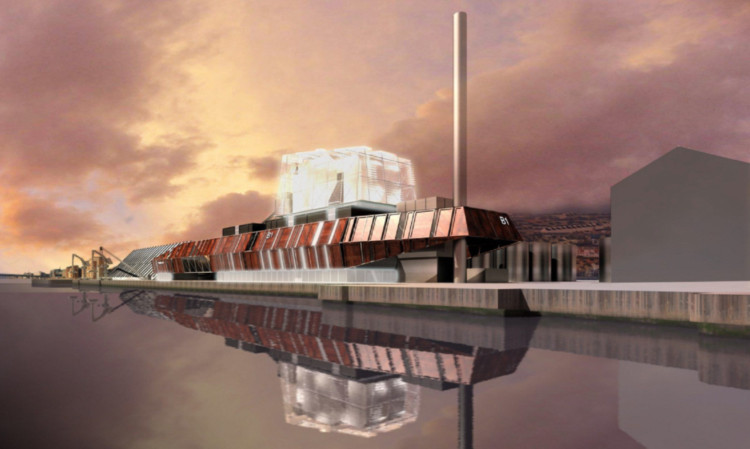Forth Energy have still to decide whether to pursue their plans to build a giant biomass plant at Dundee.
Five months ago Dundee City Council decided to formally object to the controversial £325 million proposal for the city’s harbour a decision that triggered a public inquiry.
Forth Energy would have to present their case at the inquiry, for which no date has yet been set. They said after the council decision that they would consider their position on the project, and that situation remains.
A spokesman told The Courier: “We continue to consider our position on our proposals for a combined heat and power renewable energy facility in Dundee.”
The lack of a date for an inquiry and Forth Energy’s reluctance so far to commit to that stage of the process could put the project in doubt.
The Dundee biomass proposal could take two years to go through the Scottish Government’s public scrutiny judging by the time taken for the company’s proposal for Grangemouth to be approved.
If the Dundee proposal follows a similar path, and does receive Scottish Government backing, that decision may not be taken until 2016.
There would then be another three years for further air quality tests and construction, meaning the project may not be completed until 2019. Extending the timescale could affect the viability of the project, if it is going to take until 2019 to produce electricity and heat, and make any money.
The company, a joint venture between Forth Ports and Scottish and Southern Energy, did defend the environmental credentials of the Dundee project in response to continued criticism from Friends of the Earth Tayside.
FoE said a new report had put Forth Energy’s claims that the proposed Dundee plant would be environmentally sustainable into further doubt.
The study by Biofuelwatch, the World Rainforest Movement and a Brazilian group, said that during the public inquiry about Forth Energy’s successful Grangemouth biomass application, the company’s consultants tried to rebut concerns about sustainability by referring to wood from fast-growing eucalyptus plantations certified as ‘sustainable’ in Brazil.
The study has found that these plantations had been created by bulldozing a biodiverse ecosystem on which traditional communities depend for their livelihood. Territories and forests had been removed from the communities who had been stopped from maintaining their way of life.
Andrew Llanwarne of Friends of the Earth Tayside said: “The city council decision in June focused on the local impacts of the proposed biomass power station, on air quality and the appearance of the Waterfront.
“This investigation confirms that the damaging impacts of big biomass projects extend much further, to social and environmental destruction in the countries where timber is harvested.”
Forth Energy say the wood pellets they would ship to Dundee would come from an abundant supply in North America and not from eucalyptus plantations in Brazil.
The Dundee biomass plant was first delayed for more information about impact on air quality. Tests concluded that nitrogen dioxide emissions from the plant would be negligible although this was disputed by the scheme’s critics.
The plant would employ up to 500 people during construction and about 70 permanent staff thereafter.
Its near 100 metre stack would dominate the area and opponents said it would spoil views along the waterfront. The V&A said they would have no problem with the site as a near neighbour, however.
